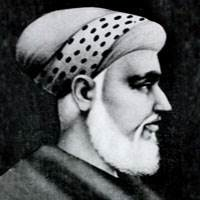Profile of Mohammad Rafi Sauda
Pen Name : 'Sauda'
Real Name : Mirza Mohammad Rafi Saudaa
Born :Delhi
Died : 26 Jun 1781 | Lucknow, Uttar pradesh
Relatives : Mirza Azeem Beg 'Azeem' (Disciple), Qayem Chaandpuri (Mentor)
'saudā' jo tirā haal hai itnā to nahīñ vo
kyā jāniye tū ne use kis aan meñ dekhā
EXPLANATION #1
सौदा के इस शे’र में लफ़्ज़ “वो” और “उसे” का इशारा महबूब की तरफ़ है। शे’र के शाब्दिक मायनी तो ये हैं कि सौदा जो तेरा हाल है उतना वो यानी तेरे महबूब का नहीं है। समझ में नहीं आता कि तूने उसे किस वक़्त और किस कैफ़ियत में देखा है?
लेकिन जब दूर के मानी यानी भावार्थ पर ग़ौर करते हैं तो ख़याल की एक स्थिति उभरती है। उस स्थिति के दो पात्र हैं एक सौदा दूसरा कलाम करने वाला यानी सौदा से बात करने वाला। ये सौदा का कोई दोस्त भी हो सकता है या ख़ुद सौदा भी।
बहरहाल जो भी है वो सौदा से ये कहता है कि ऐ सौदा तूने जिस माशूक़ के ग़म में अपना ये हाल बना लिया है यानी अपनी हालत बिगाड़ ली है, मैंने उसे देखा है और वो हरगिज़ इतना ख़ूबसूरत नहीं कि उसके लिए कोई अपनी जान हलकान करे। मालूम नहीं तुमने उसे किस आन में देखा है कि वो तेरे दिल को भा गया। आन के दो मानी हैं, एक है समय और दूसरा माशूक़ाना छवि, शान-ओ-शौकत, रंग-ढंग। और शे’र में आन को दूसरे मायनी यानी माशूक़ाना छवि, रंग-ढंग में लिया गया है। पता नहीं ऐ सौदा तूने उसे यानी अपने महबूब को किस माशूक़ाना छवि, रंग-ढंग में देखा है कि उसके इश्क़ में जान हलकान कर बैठे हो। मैंने उसे देखा वो इतना भी ख़ूबसूरत नहीं कि कोई उसके इश्क़ में अपने आपको तबाह ओ बर्बाद कर ले।
Shafaq Sopori
'sauda' jo tera haal hai itna to nahin wo
kya jaaniye tu ne use kis aan mein dekha
EXPLANATION #1
सौदा के इस शे’र में लफ़्ज़ “वो” और “उसे” का इशारा महबूब की तरफ़ है। शे’र के शाब्दिक मायनी तो ये हैं कि सौदा जो तेरा हाल है उतना वो यानी तेरे महबूब का नहीं है। समझ में नहीं आता कि तूने उसे किस वक़्त और किस कैफ़ियत में देखा है?
लेकिन जब दूर के मानी यानी भावार्थ पर ग़ौर करते हैं तो ख़याल की एक स्थिति उभरती है। उस स्थिति के दो पात्र हैं एक सौदा दूसरा कलाम करने वाला यानी सौदा से बात करने वाला। ये सौदा का कोई दोस्त भी हो सकता है या ख़ुद सौदा भी।
बहरहाल जो भी है वो सौदा से ये कहता है कि ऐ सौदा तूने जिस माशूक़ के ग़म में अपना ये हाल बना लिया है यानी अपनी हालत बिगाड़ ली है, मैंने उसे देखा है और वो हरगिज़ इतना ख़ूबसूरत नहीं कि उसके लिए कोई अपनी जान हलकान करे। मालूम नहीं तुमने उसे किस आन में देखा है कि वो तेरे दिल को भा गया। आन के दो मानी हैं, एक है समय और दूसरा माशूक़ाना छवि, शान-ओ-शौकत, रंग-ढंग। और शे’र में आन को दूसरे मायनी यानी माशूक़ाना छवि, रंग-ढंग में लिया गया है। पता नहीं ऐ सौदा तूने उसे यानी अपने महबूब को किस माशूक़ाना छवि, रंग-ढंग में देखा है कि उसके इश्क़ में जान हलकान कर बैठे हो। मैंने उसे देखा वो इतना भी ख़ूबसूरत नहीं कि कोई उसके इश्क़ में अपने आपको तबाह ओ बर्बाद कर ले।
Shafaq Sopori
Mirza Mohammad Rafi Sauda (1713-1781), son of an aristocrat father who had migrated from Kabul to India for trade, was born in Delhi. He was well provided for to meet the needs of a decent life and lived in comfort. Not attracted by mercantile interests of his family, Sauda found a place of prestige in the court and also among the nobility. He left Delhi when the city fell a prey to misfortune, and went to several places in Uttar Pradesh, before he came to Lucknow. Nawab Asifuddaulah patronised him and rewarded with an annual stipend of rupees six thousand.
Sauda wrote in Persian, before coming to Urdu. John Borthwick Gilchrist, the famous linguist and Indologist, acknowldged rather profusely that he learnt his Urdu from Sauda’s Divaan. The Persian literary tradition helped him acquire a tone and tenor which he adopted to his benefit for writing his poetry in Urdu. He looked at life sportingly, enjoyed his vigour and optimism, and relished the pleasures of life in full measure. He reflected this spirit of broader and brighter apprehensions of life in his poetry with certain ease. Both his Persian and Urdu poetry expressed his maturity of thought and linguistic finesse in these two languages. His ghazals hold close to the tone and tenor of panegyric which he brought to its height. Marked for his vitality of imagination, precise turns of phrases, and compact expressions, he practised various forms of poetry like panegyric, satire, and elegy, and emerged as one of the canonical poets in Urdu.

